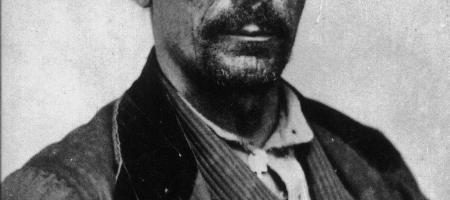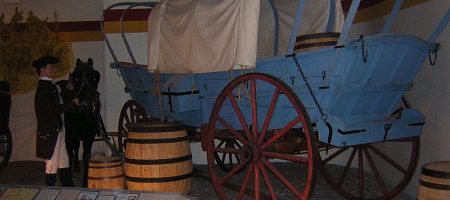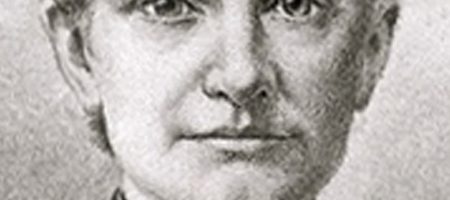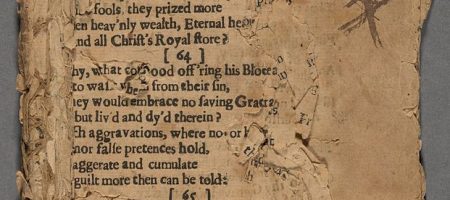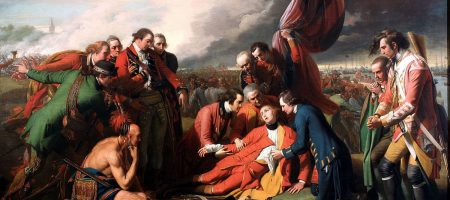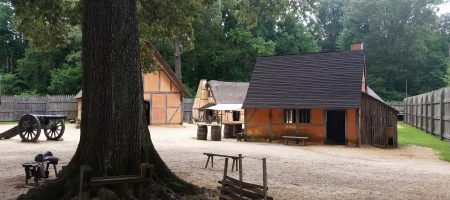Timeline 1800’s | 19th Century
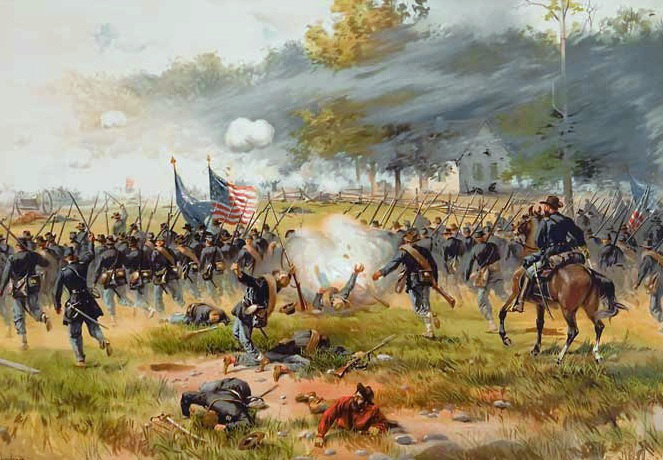 19th Century
19th Century
1801 Thomas Jefferson was elected President by the House of Representatives. Aaron Burr became Vice President.
Adams appointed John Marshall Chief Justice.
1803 The Supreme Court issued a decision in Marbury v. Madison which overturned a portion of Section 13 of the Judiciary Act of 1789.
Louisiana Purchase: The purchase was made.
March 1 Ohio, formerly the Northwest Territory, became the 17th state.
1804 The Twelfth Amendment to the United States Constitution was ratified.
New Jersey abolished slavery.
July 11 Burr–Hamilton duel: Alexander Hamilton was fatally wounded.
Lewis and Clark began their journey west.
November 2 – December 5 U.S. presidential election: Jefferson was reelected President; George Clinton was elected Vice President.
1807 The Embargo Act of 1807 was passed.
Robert Fulton invented the steamboat.
1808 The international slave trade was outlawed.
November 4 – December 7 U.S. presidential election: James Madison was elected president; Clinton was reelected as Vice President.
1809 Madison was inaugurated.
March 1 The Non-Intercourse Act was passed.
1810 The Supreme Court issues a decision in Fletcher v. Peck which overturns a state law.
1811 The charter of the First Bank of the United States expires.
1812 War of 1812: The war begins.
Daniel Webster was elected to the United States Congress.
April 30 Louisiana became the 18th state.
December 2 U.S. presidential election, 1812: Madison was reelected President; Elbridge Gerry was elected Vice President.
1814 August 24 Burning of Washington: British troops burned Washington, D.C. but were forced back at Baltimore.
December 14 War of 1812: The Treaty of Ghent ended the war.
1815 January 8 War of 1812: Battle of New Orleans: The battle took place before notification of the Treaty of Ghent made it to the frontier.
1816 December 4 U.S. presidential election, 1816: James Monroe was elected President; Daniel D. Tompkins was elected Vice President.
The Second Bank of the United States was chartered.
December 11 Indiana became the 19th state.
1817 March 4 Monroe was inaugurated.
The Rush–Bagot Treaty was signed.
Harvard Law School was founded.
December 10 Mississippi became the 20th state.
1818 The Cumberland Road opened.
December 3 Illinois became the 21st state.
The Jackson Purchase in Kentucky was obtained.
1819 Panic of 1819: The panic took place.
The Adams–Onís Treaty, which provided for the acquisition of Florida, was signed.
The decision in McCulloch v. Maryland prohibited state laws from infringing upon federal Constitutional authority.
The decision in Dartmouth College v. Woodward protected the principle of honoring contracts and charters.
December 14 Alabama became the 22nd state.
1820 March 6 The Missouri Compromise was signed into law, providing for the admission of the District of Maine into the Union as a free state and of the southeastern portion of the Missouri Territory into the Union as the slave state of Missouri. It further provided that any additional states admitted from part of the Missouri Territory would be slave or free depending on whether they fell south or north, respectively, of the parallel 36°30′ north.
March 14 The Supreme Court held in a decision in Handly’s Lessee v. Anthony that where a river is said to be the boundary between two states, the boundary is determined by the course of the river at its lowest point.
March 15 The state of Maine was admitted to the Union. Massachusetts’s 14th congressional district was abolished.
Spring Joseph Smith claimed to have had his first vision of God in Manchester, New York. See First Vision.
April 24 The Land Act of 1820 was signed into law, ending the provision of credit to individual buyers of federal land and simultaneously reducing the minimum price and size of tracts that could be sold.
3 May The seven-member United States House Committee on Agriculture, a standing committee of the House, was established.
15 May The Tenure of Office Act (1820) was passed by the Congress, limiting the term in office of civil servants to four years.
August 28 Missouri gubernatorial election, 1820: Democratic-Republican Alexander McNair was elected governor of Missouri with seventy-two percent of the vote.
October 18 The Choctaw and the United States concluded the Treaty of Doak’s Stand, under which the former ceded roughly half their territory to Mississippi and agreed to be moved west into modern Arkansas.
October 19 Democratic-Republican Isham Talbot was elected to fill the seat left vacant by the Logan’s resignation.
November 1 United States presidential election, 1820: Voting began for election to the presidency.
December 6 United States presidential election, 1820: Voting ended. Monroe was reelected with eighty-one percent of the vote.
December 25 Federalist senator James Burrill Jr. died.
1821 August 10 Missouri becomes the 24th state.
1823 The Monroe Doctrine is proclaimed.
1824 The decision in Gibbons v. Ogden affirms federal over state authority in interstate commerce.
U.S. presidential election: An election is held with inconclusive results.
1825 9 February United States presidential election, 1824: John Quincy Adams was elected president by the House, winning thirteen of twenty-four states.
12 February The United States and several unauthorized representatives of the Muscogee signed the Treaty of Indian Springs, under which the latter ceded their territory east of the Mississippi River to Georgia and Alabama.
2 March Capture of the Anne: American, Danish West Indian and Colombian ships captured the flagship of the pirate Roberto Cofresí in the Caribbean Sea.
3 March The Crimes Act of 1825, which extended the authority of the federal government to prosecute a number of crimes and which included the first Assimilative Crimes Act, extending the laws of the surrounding states into federal enclaves, was signed into law.
4 March Inauguration of John Quincy Adams: John Quincy Adams was inaugurated president in the House chamber of the Capitol.
8 March New Hampshire’s at-large congressional district special election, 1825: Titus Brown was unanimously elected to the House from New Hampshire in a special election caused by representative-elect James Miller’s declining to serve.
17 May South Carolina’s 1st congressional district special election, 1825: William Drayton was elected to the House from South Carolina’s 1st congressional district with seventy-five percent of the vote, filling the seat left vacant by Poinsett’s resignation.
26 May The American Unitarian Association was established.
3 June The Kaw ceded much of their territory in Missouri and modern Kansas to the United States.
1 August Kentucky’s 3rd congressional district special election, 1825: James Clark was elected with fifty-nine percent of the vote to fill the House seat representing Kentucky’s 3rd congressional district, vacant since Clay’s resignation.
19 August The United States negotiated and signed the First Treaty of Prairie du Chien, under which the Sioux agreed to borders with the Sac and Fox, Menominee, Iowa, Ho-Chunk and the Council of Three Fires and pledged to remain at peace with them.
26 August Pennsylvania’s 16th congressional district special election, 1825: Robert Orr, Jr. was elected to the House from Pennsylvania’s 16th congressional district in a special election to fill the vacancy left by Allison’s resignation.
14 October Senator Andrew Jackson of Tennessee resigned his seat.
7 November Beauchamp–Sharp Tragedy: Lawyer Jereboam O. Beauchamp murdered attorney general Solomon P. Sharp of Kentucky at his home in Frankfort, Kentucky over an affair Sharp had with Beauchamp’s wife before their marriage.
The United States and the Shawnee signed the Treaty of St. Louis, under which the latter sold the territory around Cape Girardeau, Missouri.
5 December The United States and Central America signed the United States–Central America Treaty, under which each granted the other most favoured nation status with respect to trade.
9 December The Committee on Agriculture, now the Committee on Agriculture, Nutrition and Forestry, a standing committee of the Senate, was established.
1826 July 4 Former presidents Jefferson and John Adams die within hours of each other; ironically on Independence Day.
1828 Nullification Crisis: The South Carolina Exposition and Protest is published.
Construction begins on the Baltimore and Ohio Railroad.
December 2 U.S. presidential election, 1828: Andrew Jackson is elected President; Calhoun continues as Vice President.
1829 March 4 Jackson is inaugurated.
1830 Second Great Awakening: A Christian revival takes place.
The Oregon Trail comes into use by settlers migrating to the Pacific Northwest.
May 28 The Indian Removal Act is passed.
1831 A revolt led by Nat Turner occurs.
Publication of The Liberator begins.
Cyrus McCormick invents the reaper.
Petticoat Affair: The affair took place.
1832 The Supreme Court rules in favor of the Cherokee Nation in Worcester v. State of Georgia.
Black Hawk War: The war takes place.
The Tariff of 1832 is passed.
The Ordinance of Nullification is passed by South Carolina.
The Department of Indian Affairs is established.
United States presidential election, 1832: Jackson is reelected President; Martin Van Buren is elected Vice President of the United States.
Bank War: Jackson vetoes the charter renewal of the Second Bank of the United States.
Calhoun resigns the Vice Presidency.
1833 The Force Bill, expanding Presidential powers, is passed.
Jackson’s second inauguration is held.
1834 Slavery debates takes place at Lane Theological Seminary.
1835 Texas Revolution: The revolution begins.
Alexis De Tocqueville’s Democracy in America is published.
Second Seminole War: A war begins in Florida with Seminole resistance to relocation.
1836 Battle of the Alamo: The battle takes place.
Battle of San Jacinto: The battle takes place.
Creek War of 1836: The war takes place.
Samuel Colt invents the revolver.
The original “Gag Rule”, a bar on discussion of antislavery petitions passed by the House, is imposed.
The Specie Circular is issued.
June 15 Arkansas becomes the 25th state.
U.S. presidential election, 1836: Van Buren is elected President, Richard Mentor Johnson Vice President.
1837 Van Buren is inaugurated.
The United States recognizes the Republic of Texas.
Caroline Affair: The affair takes place.
January 26 Michigan becomes the 26th state.
Oberlin College begins enrolling female students.
Panic of 1837: The panic takes place.
A decision in Charles River Bridge v. Warren Bridge reverses a decision in Dartmouth College v. Woodward and affirms that property rights can be overridden by public need.
1838 The forced removal of the Cherokee Nation from the Southeastern United States along the Trail of Tears led to the deaths of more than 4,000 Native American Indians.
Aroostook War: The war takes place.
1840 United States presidential election, 1840: An election is held.
1841 William Henry Harrison becomes President.
John Quincy Adams argues the case United States v. The Amistad before the Supreme Court.
United States v. The Amistad is decided.
President Harrison dies after only a month in office.
John Tyler becomes President.
1842 August 9 The Webster–Ashburton Treaty is signed.
Dorr Rebellion: A civil war takes place in Rhode Island.
1843 An attempt to impeach Tyler fails.
1844 U.S. presidential election, 1844: An election is held.
1845 January 23 Congress passed the Presidential Election Day Act, establishing the Tuesday after the first Monday in November as the day on which electors of the Electoral College are elected in all states.
February Israel Dammon trial: Israel Dammon was tried in Atkinson, Maine for disturbing the peace after leading a congregation of Millerites in worship.
March 3 The Florida Territory was admitted to the union as the state of Florida.
March 4 Inauguration of James K. Polk: Democrat James K. Polk was sworn in as president in Washington, D.C..
April 10 Great Fire of Pittsburgh: A fire in Pittsburgh burned roughly a third of the city and killed two.
8 May A gathering of Triennial Convention Baptists met in Augusta, Georgia to establish a new church, the Southern Baptist Convention, following disputes over slavery.
28 May Milwaukee Bridge War: Residents of the east side of what is now Milwaukee destroyed two bridges leading to the west side over the Milwaukee and Menomonee Rivers.
July 19 Great New York City Fire of 1845: A fire in New York City killed thirty, including four firefighters.
October 10 The United States Naval Academy was founded.
November 4 United States House of Representatives elections, 1844: The last elections to the House for the 29th Congress, in Mississippi, were held. The Democratic Party retained a significant majority. The nativist Know Nothing party won six seats.
December 29 Texas annexation: Polk signed into law a bill admitting the Republic of Texas into the union as the state of Texas.
1846 Mexican–American War: The war begins.
December 28 Iowa becomes the 29th state.
The Wilmot Proviso is introduced.
1848 U.S. presidential election, 1848: An election is held.
Seneca Falls Convention for women rights. They wrote the Declaration of Sentiments which they added women to the Declaration of Independence.
May 29 Wisconsin becomes the 30th state.
February 2 Mexican–American War: The Treaty of Guadalupe Hidalgo ends the war.
1849 Zachary Taylor becomes President.
California Gold Rush: The gold rush begins.
1850 12 January Thomas Pratt was elected to the Senate from Maryland, replacing fellow Whig who had until then held it by appointment to fill a vacancy.
21 February The Supreme Court held in a decision in Sheldon v. Sill that the Congress, which has the power under the Constitution to institute lower courts of the judiciary, also has the power to limit their jurisdiction.
31 March Calhoun died of tuberculosis in Washington, D.C.
16 April Gila Expedition: Californian volunteers launched a punitive expedition against the Quechan.
19 April The United States and the United Kingdom signed the Clayton–Bulwer Treaty, under which each promised to maintain the neutrality of a proposed canal through Nicaragua and not to occupy or colonize any territory in Central America.
Ohio Women’s Convention at Salem in 1850: A women’s rights meeting convened at Salem, Ohio.
20 April Ohio Women’s Convention at Salem in 1850: The Convention drafted a petition to the upcoming Ohio state constitutional convention asking that women be granted the franchise as well as civil and political rights equal to those of men.
15 May Bloody Island massacre: An American punitive expedition killed as many as one hundred Pomo civilians on an island in Clear Lake.
22 May First Grinnell Expedition: An expedition to determine the fate of John Franklin, a British officer disappeared in the Arctic Ocean, departed New York.
3 June Nashville Convention: A convention of delegates from nine slave states met in Nashville, Tennessee.
Cayuse War: Five Cayuse were hanged for the 1847 murder of fourteen missionaries near modern Walla Walla, Washington.
10 June Nashville Convention: The Convention resolved to propose the extension of the Missouri Compromise line west to the Pacific Ocean.
10 July Inauguration of Millard Fillmore: Vice president Millard Fillmore was sworn in as president at the Capitol in Washington, D.C.
20 July Senator Thomas Corwin of Ohio resigned his seat following his appointment as Secretary of the Treasury. Fellow Whig Thomas Ewing was appointed to fill his seat.
22 July Whig senator Daniel Webster of Massachusetts resigned his seat following his appointment as Secretary of State.
5 August United States House of Representatives elections, 1850: The first regular elections to the House for the 32nd Congress were held, in Iowa and Missouri.
14 August Squatters’ riot: A riot broke out between settlers in New Helvetia and supporters of John Sutter’s claim to the land in which five people were killed.
17 August Whig congressman Charles Magill Conrad of Louisiana’s 2nd congressional district resigned following his appointment as Secretary of War.
1 September Jenny Lind tour of America, 1850–52: Swedish singer Jenny Lind arrived in New York.
9 September California was admitted to the union as a free state. The Utah and New Mexico Territories were organized. Whether slavery was to be permitted or forbidden in each territory was left to its residents. See Compromise of 1850.
Whig congressman James Wilson II of New Hampshire’s 3rd congressional district resigned.
10 September California elected Democrats John C. Frémont and William M. Gwin to the Senate.
18 September The Fugitive Slave Act of 1850 was passed, eliminating the last civil and political rights of escaped slaves and imposing serious penalties for harboring or failing to arrest fugitives.
20 September The slave trade was abolished in Washington, D.C.
27 September The Donation Land Claim Act was signed into law, granting free plots of land to white and half-blooded Native American settlers of the Oregon Territory.
28 September Congress passed the Swamp Land Act of 1850, providing a mechanism for the transfer of swamp land from the federal government to the states for drainage and improvement.
14 October Virginia Constitutional Convention of 1850: A state constitutional convention convened in Virginia to address the disenfranchisement of the state’s west.
5 November New York state election, 1850: Elections were held to statewide office in New York. Whig candidate Washington Hunt was narrowly elected governor.
10 December A specially elected convention in Georgia adopted the Georgia Platform accepting the Compromise of 1850 but warning against infringement of the rights of states in the South.
13 December The federal government assumed Texas’s debt. In exchange, Texas officially renounced its territorial claims in the New Mexico Territory.
1852 U.S. presidential election, 1852: An election is held.
1852 Uncle Tom’s Cabin: Uncle Tom’s Cabin is published
1853 Franklin Pierce becomes President.
Commodore Matthew Perry opens Japan.
1854 The Kansas–Nebraska Act is passed, nullifying the Missouri Compromise.
June 8 The Gadsden Purchase is finalized.
The Ostend Manifesto is issued.
The Convention of Kanagawa is signed.
William Walker leads an expedition.
1855 The Farmers’ High School, later Penn State University, is founded.
1856 Sacking of Lawrence: The sacking of Lawrence takes place.
May 24–25 Pottawatomie massacre: The massacre, led by John Brown, takes place.
Preston Brooks beats Charles Sumner with his walking stick in the Senate chamber.
U.S. presidential election, 1856: An election is held.
1857 James Buchanan becomes President.
A decision in Dred Scott v. Sandford declares blacks are not citizens of the United States and, therefore, do not have the right to file lawsuits.
May Utah War: The war starts.
The LeCompton Constitution is rejected in the Kansas Territory.
Panic of 1857: The panic takes place.
1858 The first transatlantic cable is laid.
May 11 Minnesota becomes the 32nd state.
Lincoln-Douglas Debates: The debates are held.
The United States becomes a party to the Treaty of Tientsin.
1859 John Brown leads a raid on Harper’s Ferry.
February 14 Oregon becomes the 33rd state.
The Comstock Lode is discovered.
1860 The Pony Express is founded.
The Crittenden Compromise is reached.
November 6 United States presidential election, 1860: Abraham Lincoln is elected President of the United States.
December 20 South Carolina seceded from the Union.
1861 Ten more states secede from the Union and established the Confederate States of America.
January 29 Kansas becomes the 34th state.
Jefferson Davis is elected President of the Confederacy.
American Civil War: The war begins at Fort Sumter.
Confederate Batteries 2.jpg
First Battle of Bull Run: The battle takes place.
First Battle of Bull Run Kurz & Allison.jpg
1862 Battle of Hampton Roads: A naval battle between the Monitor and Merrimack takes place.
The Monitor and Merrimac.jpg
The Homestead Act is passed.
The Morrill Land-Grant Colleges Act is passed.
General Robert E. Lee is placed in command of the Army of Northern Virginia.
Second Battle of Bull Run: The battle takes place.
Second Battle of Bull Run.jpg
Battle of Antietam: The battle takes place.
Battle of Antietam.png
August 17 – December 26 Dakota War of 1862: The war is fought.
1904paintingAttackNewUlmAntonGag.jpg
1863 Battle of Gettysburg: The battle takes place.
Battle of Gettysburg, by Currier and Ives.png
January 1 Lincoln issues the Emancipation Proclamation freeing slaves in those states that had seceded.
The Proclamation of Emancipation.jpg
Siege of Vicksburg: The siege takes place.
Battle of Vicksburg, Kurz and Allison.png
New York City draft riots: Draft riots take place.
New York Draft Riots – fighting.jpg
June 20 Pro-Union counties which had seceded from Virginia become the 35th state West Virginia.
1864 General Ulysses S. Grant is put in command of all Union forces.
The Wade–Davis Bill is passed.
Sand Creek massacre: The massacre takes place.
October 31 Nevada becomes the 36th state.
U.S. presidential election, 1864: An election is held.
Sherman’s March to the Sea: The march takes place.
1865 Lee is named commander-in-chief of all Confederate forces.
Richmond, Virginia, the Confederate capital, is captured by a corps of black Union troops.
Currier and Ives – The Fall of Richmond, Va. on the Night of April 2d. 1865 (cropped).jpg
Lee surrenders to Grant at Appomattox Court House.
General Robert E. Lee surrenders at Appomattox Court House 1865.jpg
April 15 Abraham Lincoln assassination: Lincoln is assassinated; Andrew Johnson became President.
Assassination of President Lincoln.jpg
American Civil War: The war ends with the surrender of the last elements of the Confederacy.
The Thirteenth Amendment to the United States Constitution is passed, permanently outlawing slavery.
AdoptionOf13thAmendment.jpg
The Freedmen’s Bureau is established.
The South – a tour of its battlefields and ruined cities, a journey through the desolated states, and talks with the people; being a description of the present state of the country, its agriculture, (14757932774).jpg
1866 The Civil Rights Act of 1866 is passed.
Civil Rights Bill Passes, 1866 (1974), by Allyn Cox.png
The Ku Klux Klan is founded.
1867 The Tenure of Office Act (1867) is enacted.
March 1 Nebraska becomes the 37th state.
The Alaska Purchase referred to as “Seward’s Folly” by critics: The Alaska territory is purchased from Russia.
Alaska purchase.jpg
1868 Impeachment of Andrew Johnson: Johnson is impeached by the House, but acquitted by the Senate.
Andrew Johnson impeachment trial.jpg
The Fourteenth Amendment to the United States Constitution, second of the Reconstruction Amendments, is ratified.
Grant is elected President.
Ulysses S. Grant 1870-1880.jpg
1869 The First Transcontinental Railroad is completed at Promontory Summit, Utah Territory.[72]
May 15 Women’s suffrage leaders Susan B. Anthony and Elizabeth Cady Stanton found the National Woman Suffrage Association.
1870 January 15 Murder of John R. Bitzer: Chinese national Ah Chow fatally shot miner John R. Bitzer in Montana.
January 26 Virginia was readmitted to representation in Congress. It sent one Republican and one Democrat to the Senate and three Republicans and five Democrats, some of whom were seated over the following five days, to the House.
February 3 The Fifteenth Amendment, which prohibits federal and state governments from denying the right to vote to any citizen on the basis of “race, color or previous condition of servitude,” was ratified.
February 17 Democrat George Woodward Greene was removed from the House after Republican Charles Van Wyck, who succeeded him, challenged his credentials as a duly elected member.
February 23 Mississippi was readmitted to representation in Congress. The Fourth Military District was dissolved. Mississippi sent four Republicans to the House and two, including the first black congressman, to the Senate.
February 28 Republican congressman John T. Deweese resigned under investigation for appointments he had made to the United States Military Academy and United States Naval Academy.
March 30 Texas was readmitted to representation in Congress. It sent two Republicans to the Senate and three Republicans and one Democrat to the House, some of whom were seated the following day.
17 May New York special judicial election, 1870: The Democratic Party won four seats to the Republicans’ two, in addition to the chief justiceship, in a special election to the New York Court of Appeals.
31 May The Enforcement Act of 1870, which empowered the Marshals Service and the federal courts to enforce the Fifteenth Amendment, was signed into law.
June 6 United States House of Representatives elections, 1870: The first elections to the House for the 42nd Congress were held, in Oregon.
June 22 A bill establishing the Department of Justice was signed into law. The law brought all United States Attorneys under the authority of the Attorney General, granted the new department exclusive authority to prosecute federal crimes, and created the office of the Solicitor General, responsible for representing the federal government before the Supreme Court.
July 1 A group of conservative members of the Virginia General Assembly organized as the Conservative Party of Virginia.
July 12 The Currency Act of 1870 was signed into law, maintaining the supply of Demand Notes and replacing 45 million dollars in temporary loan certificates with banknotes.
July 14 Congress passed the Funding Act of 1870, authorizing the refinancing of the national debt through the issuance of long-term debt instruments.
The Naturalization Act of 1870, which created a system of controls for the naturalization process and extended the process to persons of African origin and descent, was signed into law.
July 15 Georgia was readmitted to representation in Congress. Its representatives were held ineligible and not seated.
September 18 Washburn–Langford–Doane Expedition: Explorer Henry D. Washburn observed and named Old Faithful.
November 8 Conservative Richard Thomas Walker Duke was seated following a special election to fill the vacancy left by Ridgway’s death.
New York state election, 1870: Elections to statewide office in New York resulted in a Democratic sweep.
1871 Great Chicago Fire: The fire occurs.
The Treaty of Washington, 1871 is signed with the British Empire regarding the Dominion of Canada.
1872 Yellowstone National Park is created.
Crédit Mobilier scandal: The scandal takes place.
The Amnesty Act is passed.
The Alabama Claims is settled.
U.S. presidential election, 1872: An election is held.
1873 Panic of 1873: The panic takes place.
Virginius Affair: The affair takes place.
1874 Red River Indian War
1875 14 January The Specie Payment Resumption Act, which called for the Treasury to back United States Notes with gold, was signed into law.
25 January Republican congressman William J. Purman of Florida resigned.
30 January Hawaii and the United States signed the Reciprocity Treaty of 1875, under which the United States was opened to Hawaiian sugar and Hawaii ceded territory in the area of Pearl Harbor.
18 February Mason County War: A group of German American cowboys attempted to break into the jail in Mason County, Texas to take its prisoners, cattle rustlers, to be lynched.
1 March The Civil Rights Act of 1875 was signed into law, guaranteeing blacks equal treatment in public accommodations and public transportation and making them equally eligible for jury duty.
3 March The Page Act of 1875, which banned the entry into the United States of prostitutes and unfree labour from Asia, came into force.
Democrat Effingham Lawrence was seated in the House seat representing Louisiana’s 1st congressional district following his successful challenge of the election of Republican J. Hale Sypher.
19 March March 1875 Southeast tornado outbreak: A two-day tornado outbreak began in which some one hundred people would be killed in the Southeast.
29 March The Supreme Court held in a decision in Minor v. Happersett that the Fourteenth Amendment does not grant women the right to vote.
25 April Rutgers–Princeton Cannon War: Rutgers College students stole a cannon from the campus of the College of New Jersey in Princeton, New Jersey.
17 May 1875 Kentucky Derby: Aristides won the first running of the Kentucky Derby in Louisville, Kentucky.
18 August Democrat David M. Key was appointed to Johnson’s vacant Senate seat.
7 September California gubernatorial election, 1875: Democrat William Irwin was elected governor of California with fifty percent of the vote.
United States House of Representatives elections, 1874: The last regular elections to the House for the 44th Congress were held, in California. The Democrats gained ninety seats, transforming their caucus from a small minority to a dominant majority.
13 September Republican Harris M. Plaisted was seated in the House following a special election in Maine’s 4th congressional district to fill Hersey’s vacancy.
14 September Colfax County War: A reverend allied with settlers on the Maxwell Land Grant was found murdered in the canyon of the Cimarron River.
12 October Pennsylvania gubernatorial election, 1875: Pennsylvania governor John F. Hartranft, a Republican, won reelection with fifty percent of the vote.
2 November Minnesota gubernatorial election, 1875: Republican John S. Pillsbury was elected governor of Minnesota with fifty-six percent of the vote.
New York state election, 1875: Elections were held to statewide office and to the State Assembly and State Senate in New York.
Republican William W. Crapo was seated in the House following a special election in Massachusetts’s 1st congressional district to fill Buffington’s vacancy.
20 November Las Cuevas War: A forces of Texas Rangers crossed into Tamaulipas in pursuit of stolen cattle and came into armed conflict with Mexican militia in which at least eighty were killed.
21 November Las Cuevas War: The Texas Rangers took a Mexican customs officer hostage. The cattle were returned to the United States.
6 December Republican Nelson I. Norton was seated in the House following a special election in New York’s 33rd congressional district to fill the vacancy left by the death of representative-elect Augustus F. Allen, also a Republican.
14 December Democrat Haywood Yancey Riddle was seated in the House following a special election in Tennessee’s 4th congressional district to fill Fite’s vacancy.
1876 The National League of baseball is founded.
Centennial Exposition: The Exposition, in Philadelphia, is held.
A decision in Munn v. Illinois establishes the public regulation of utilities.
Colorado becomes the 38th state.
Battle of Little Bighorn: The battle takes place.
Wild Bill Hickok is killed by a shot to the back of the head by Jack McCall while playing poker in Deadwood, South Dakota.
Alexander Graham Bell invents the telephone.
U.S. presidential election, 1876: The election produced an unclear result with 20 Electoral College votes disputed.
1877 The Electoral Commission awarded Rutherford B. Hayes the Presidency.
Reconstruction era of the United States: The era ends.
Nez Perce War: The war takes place.
1878 The Bland-Allison Act is passed.
The first Morgan silver dollar is minted.
1879 Thomas Edison invents the light bulb.
The Knights of Labor goes public.
1880 The University of Southern California is founded.
The Population of the United States passes 50 million.
1881 Gunfight at the O.K. Corral: A gunfight takes place in Tombstone, Arizona Territory.
James Garfield is inaugurated President of the United States.
James Abram Garfield, photo portrait seated.jpg
Garfield is assassinated.
Garfield assassination engraving cropped.jpg
Chester A. Arthur is inaugurated President of the United States.
20 Chester Arthur 3×4.jpg
Clara Barton founds the American Red Cross.
The Tuskegee Institute is founded
Billy the Kid is shot and killed by Sheriff Pat Garrett.
A Century of Dishonor is written by Helen Hunt Jackson.
1882 The Chinese Exclusion Act is passed.
Jesse James is shot and killed by Robert Ford and Charlie Ford.
1883 Buffalo Bill Cody debuts his Wild West Show.
A decision in the Civil Rights Cases legalizes the doctrine of racial segregation.
The Pendleton Civil Service Reform Act is passed.
The Brooklyn Bridge opens.
1885 Grover Cleveland is inaugurated as President.
The Washington monument is completed.
1886 Haymarket riot: The riot takes place.
The American Federation of Labor is founded in Columbus, Ohio.
1887 The United States Congress creates the Interstate Commerce Commission.
The Dawes Act is passed.
The Hatch Act is passed.
1888 Looking Backward, by Edward Bellamy, is published.
The National Geographic Society is founded.
1889 Benjamin Harrison becomes President
November 2 North Dakota, South Dakota becomes the 39th and 40th states.
November 8 Montana becomes the 41st state
November 11 Washington becomes the 42nd state.
Johnstown flood: A flood occurs in Pennsylvania.
Jane Addams founds Hull House.
April 22 Land Run of 1889: The land run begins.
1890 The Sherman Antitrust Act is passed.
Jacob Riis publishes How the Other Half Lives.
The Sherman Silver Purchase Act is passed.
The McKinley tariff is passed.
Yosemite National Park is created.
July 3 Idaho becomes the 43rd state.
July 10 Wyoming becomes the 44th state.
Wounded Knee massacre: The massacre takes place.
The National American Woman Suffrage Association is founded.
1891 Baltimore Crisis: The crisis takes place.
James Naismith invents basketball.
1892 Homestead Strike: The strike takes place.
General Electric is founded.
The Sierra Club is founded
1893 Cleveland is inaugurated President for a second term.
Panic of 1893: The panic takes place.
The Sherman Silver Purchase Act is repealed.
1894 Coxey’s Army march on Washington, D.C.
Pullman strike: The strike takes place.
The Wilson-Gorman Tariff Act, including an income tax, is passed.
1895 January 5 Democratic congressman Thomas H. Paynter of Kentucky’s 9th congressional district resigned following his appointment to the Kentucky Court of Appeals.
January 14 Congressman Julius C. Burrows of Michigan’s 3rd congressional district was elected to fill the Senate seat representing Michigan fellow Republican John Patton Jr. held by appointment following the death of Republican Francis B. Stockbridge.
January 16 Republican Lee Mantle was elected to the Senate from Montana.
January 21 The Supreme Court reached a decision in Sparf v. United States. It established some standards for acceptable confessions and held that federal judges are not required to instruct juries of their right of jury nullification.
In a decision in United States v. E. C. Knight Co., the Supreme Court held that the Commerce Clause does not grant the government the power to regulate manufacturers under the Sherman Antitrust Act.
January 23 Republican Clarence D. Clark was elected to the Senate from New York.
Jeter Connelly Pritchard was elected to fill the Senate seat representing North Carolina fellow Democrat Thomas Jordan Jarvis held by appointment following the death of Democrat Zebulon Baird Vance.
February 18 The Maguire Act of 1895, which ended imprisonment for sailor deserters in certain cases, came into force.
February 19 Republican John L. Wilson was elected to the Senate from Washington.
February 23 Edwin J. Jorden was seated in the House after a special election to the seat representing Pennsylvania’s 15th congressional district to fill the vacancy left by the death of fellow Republican Myron Benjamin Wright.
February 24 Cuban War of Independence: Uprisings against Spanish rule began across Cuba.
March 4 Jorden resigned.
In a decision in Coffin v. United States, the Supreme Court held that criminal defendants are presumed innocent until proven guilty beyond a reasonable doubt, and that judges presiding over juries must advise them of that fact.
Democratic congressman James C. C. Black of Georgia’s 10th congressional district resigned.
March 12 1895 New Orleans dockworkers riot: A mob of white union dockworkers killed six blacks in New Orleans following an announcement that many of them would be laid off and replaced with cheaper black labor.
April 8 The Supreme Court held in a decision in Pollock v. Farmers’ Loan & Trust Co. that a law imposing taxes on individual interest, dividends and rents violated the Constitution because the taxes were not appropriately apportioned.
April 27 Nicaragua Crisis of 1895: Great Britain occupied Corinto, Nicaragua following Nicaragua’s annexation of the Mosquito Coast.
May 6 1895 Kentucky Derby: Halma won a running of the Kentucky Derby in Louisville, Kentucky.
May 15 Nicaragua Crisis of 1895: British forces were forced to withdraw from Corinto, Nicaragua under the terms of the Clayton–Bulwer Treaty.
May 22 Republican congressman William Cogswell of Massachusetts’s 6th congressional district died.
May 23 Land Run of 1895: A run took place on former Kickapoo land in the Oklahoma Territory.
May 27 In a decision in In re Debs, the Supreme Court held that a federal injunction ordering participants in the Pullman Strike back to work was authorized under the Commerce Clause.
June 3 The Supreme Court reached a decision in Hilton v. Guyot in which it described the application of the principle of comity to the enforcement of foreign judgments in the United States.
July Venezuelan crisis of 1895: Secretary of state Richard Olney issued the Olney Proclamation, declaring that under the Monroe Doctrine the United States must intervene in a border dispute between Venezuela and British Guiana.
July 25 A network of exchanges, now the Army and Air Force Exchange Service, was established by a general order of the Department of War.
September 18 The Cotton States and International Exposition opened in Atlanta.
Atlanta Exposition Speech: Leading black intellectual Booker T. Washington delivered a speech in Atlanta advocating for the Atlanta Compromise, which would preserve segregation and white political supremacy but allow blacks due process and basic education.
October 2 Black was reelected to his own House seat.
October 4 1895 U.S. Open: Horace Rawlins won the inaugural U.S. Open in Newport, Rhode Island.
October 26 1895 Georgia vs. North Carolina football game: The North Carolina Tar Heels defeated the Georgia Bulldogs in a college football game in Atlanta.
November 5 United States House of Representatives election in Utah, 1895: Republican Clarence Emir Allen was elected to the House from Utah’s at-large congressional district with fifty percent of the vote.
Republicans James Hodge Codding and William Henry Moody were seated in the House seats left vacant by Jorden and Cogswell, respectively.
New York state election, 1895: Republicans were elected to several statewide offices in New York.
November 28 Chicago Times-Herald race: Engineer Charles Duryea won an automobile race from Chicago to Evanston, Illinois.
December 2 Republicans George W. Prince, Alfred Milnes and William F. L. Hadley were seated in the House seats left vacant by Post, Burrows and Remann, respectively.
December 27 Democratic congressman Lawrence E. McGann was removed from the House following a successful challenge of his credentials by his election opponent, Republican Hugh R. Belknap.
1896 A decision in Plessy v. Ferguson affirms the legality of “separate but equal” public facilities.
July 9 William Jennings Bryan delivered his Cross of Gold speech.
Gold was discovered in the Yukon’s Klondike region.
January 4 Utah became the 45th state.
1897 March 4 William McKinley became President.
The Boston subway was completed.
The Dingley Act was passed.
1898 February 15 The USS Maine exploded in Havana harbor.
The De Lôme Letter was published.
Spanish–American War: The Treaty of Paris (1898) ended the war.
July 7 The Republic of Hawaii was annexed.
The Newlands Resolution was passed.
The American Anti-Imperialist League was organized.
1899 The Teller Amendment was passed.
American Samoa was occupied.
The Open Door Policy was announced.
1900 January 2 Secretary of State John Hay called for an Open Door Policy among the major powers dividing China into spheres of influence and permitting its free trade with all of them.
January 8 McKinley annexed some of the Arizona Territory to the Navajo Nation, extending its boundaries west to the Colorado River.
McKinley placed Alaska under martial law.
January 25 Democratic congressman-elect B. H. Roberts of Utah was expelled from the House for practicing polygamy.
January 30 Sibley Quarry explosion: A dynamite explosion at a quarry north of Trenton, Michigan killed one worker.
February 7 Republican Thomas R. Bard was elected to the Senate from California.
San Francisco plague of 1900–1904: The first victim of plague in San Francisco fell ill in Chinatown.
February 13 Republican congressman Charles A. Chickering of New York’s 24th congressional district died after falling from a fourth-story window in New York.
February 15 Fairbank Train Robbery: An attempted robbery of a Wells Fargo express car was thwarted in Fairbank, Arizona. One would-be robber was killed.
February 19 McKinley placed Tutuila under the jurisdiction of the Department of the Navy.
March 8 Democratic congressman Gaston A. Robbins of Alabama’s 4th congressional district was unseated after it was determined that Republican William F. Aldrich had beaten him in his election.
March 12 Democratic representative William Albin Young of Virginia’s 2nd congressional district was removed from office following a contest of his 1898 election by his opponent, Republican Richard Alsop Wise.
March 13 Aldrich was seated in the House seat representing Alabama’s 4th congressional district.
March 14 The Gold Standard Act, which established gold as the only standard for redeeming paper money, ending the use of silver, was signed into law.
March 16 William McKinley appointed the Taft Commission, a five-member commission headed by William Howard Taft, to act as a civilian government for the Philippines.
March 17 Military governor Richard P. Leary of Guam abolished slavery on the island.
Philippine–American War: American forces captured Bohol.
April 7 Austin Dam failure: A dam near Austin, Texas burst, killing some one hundred people.
Battle of Cagayan de Misamis: American forces repelled a Philippine surprise attack at Cagayan de Oro.
April 12 The Foraker Act establishing a civilian government for Puerto Rico was signed into law.
April 15 Siege of Catubig: Philippine forces attacked and besieged an American force at Catubig, Northern Samar.
April 17 The United States and indigenous chiefs on Tutuila signed the Treaty of Cession of Tutuila recognizing American sovereignty over the island.
Louisiana gubernatorial election, 1900: Democrat William Wright Heard was elected governor of Louisiana with seventy-eight percent of the vote.
April 19 Siege of Catubig: The American forces at Catubig, Northern Samar were rescued. The town fell to Philippine forces.
April 30 The Hawaiian Organic Act organizing the Territory of Hawaii and granting citizenship of the United States to its residents was signed into law.
May 1 Charles Herbert Allen took office as governor of Puerto Rico.
Scofield Mine disaster: A dust explosion at a mine near Scofield, Utah killed over two hundred miners.
May 3 1900 Kentucky Derby: Lieut. Gibson won a running of the Kentucky Derby in Louisville, Kentucky.
May 5 Arthur MacArthur Jr. took office as Governor-General of the Philippines.
May 9 St. Louis streetcar strike of 1900: A riot developed in St. Louis amid the first day of a strike by the members of the local Amalgamated Street Railway Employees of America, now the Amalgamated Transit Union.
May 12 The United States District Court for the Western District of New York was established.
May 14 Battle of Agusan Hill: An American regiment dislodged Philippine forces from a hill in Cagayan de Oro.
May 15 Senator William A. Clark of Montana resigned under pressure from the Senate due to revelations that he had bribed members of the Montana Legislature for his election.
May 21 The Supreme Court held in a decision in Taylor v. Beckham that state elected office is not property for the purposes of the Fourteenth Amendment and that it had no jurisdiction in the case, which pertained to a disputed gubernatorial election in Kentucky.
May 25 The Lacey Act of 1900, which criminalizes the taking of illegally captured wildlife across state lines, was signed into law.
June 1 1900 United States Census: A census began to be taken which would count some eighty million in the United States and whose subsequent congressional apportionment would grant the greatest increases in representation to Illinois, New York and Texas.
June 4 Battle of Makahambus Hill: A Philippine force ambushed and pinned down an American battalion in modern Cagayan de Oro, dealing some twenty casualties before withdrawing.
June 10 Seymour Expedition: An expedition of the Eight-Nation Alliance led by the British vice admiral Edward Seymour departed Tianjin to protect foreign diplomats in Beijing.
June 16 Cuban local elections, 1900: The pro-independence Cuban National Party did better than expected in Cuban local elections.
June 18 Battle of Langfang: Boxers surrounded and ambushed an Eight-Nation Alliance force at Langfang, killing seven and forcing their retreat to Tianjin.
June 20 Siege of the International Legations: German diplomat Clemens von Ketteler was murdered on his way to request the protection of the Chinese government against Boxer rebels approaching the Beijing Legation Quarter in Beijing.
June 21 Boxer Rebellion: China declared war on the United States, the United Kingdom, Germany, France and Japan.
1900 Republican National Convention: McKinley was unanimously nominated the candidate of the Republican Party for the presidency at a convention in Philadelphia. Governor Theodore Roosevelt of New York was unanimously nominated the Republican candidate for the vice presidency minus his own abstention.
June 30 1900 Hoboken Docks fire: A fire at the Hoboken, New Jersey docks of New York Harbor killed some three hundred people.
July 4 Tacoma Streetcar Disaster: A streetcar left the tracks at a sharp curve in Tacoma, Washington, plunging into a ravine and killing forty passengers.
1900 Democratic National Convention: At a convention in Kansas City, Missouri, the Democratic Party adopted a platform deploring the occupation of Cuba and the Philippines and calling for bimetallism and the regulation of monopolies.
July 5 1900 Democratic National Convention: The Democratic Party nominated Bryan its nominee for the presidency and former vice president Adlai Stevenson I its nominee for the vice presidency.
July 24 Robert Charles riots: An angry crowd of whites gathered in New Orleans after a white police officer was shot and killed by black laborer Robert Charles.
August 7 1900 Westchester County tornado: A tornado caused some fifteen thousand dollars in damage near New Rochelle, New York
August 8 1900 International Lawn Tennis Challenge: A lawn tennis tournament began in Boston in which the American team would beat the British.
August 14 Battle of Peking (1900): An army of the Eight-Nation Alliance arrived at Beijing and came into conflict with Boxers and Chinese government troops.
August 15 Battle of Peking (1900): Eight-Nation Alliance forces expelled the last Boxer and Chinese government forces from Beijing. The Chinese empress dowager Empress Dowager Cixi fled.
September 8 1900 Galveston hurricane: A hurricane made landfall at Galveston, Texas which would kill as many as twelve thousand people in a single day.
September 13 Battle of Pulang Lupa: A Philippine force ambushed and decisively defeated an American one at Marinduque.
September 15 Cuban Constitutional Assembly election, 1900: An election was held to an upcoming constitutional convention in Cuba. A coalition of the conservative Republican and Democratic Union Parties won a majority of seats.
September 17 Battle of Mabitac: A Philippine force dealt heavy casualties to an American one at Mabitac, Laguna.
October 8 Murder of George E. Bailey: Farmer George E. Bailey was shot and killed by his alcoholic employee John C. Best at his farm in Saugus, Massachusetts.
October 15 Burt Lake burn-out: A sheriff in northern Michigan permitted a local land speculator to burn the homes of the Burt Lake Band of Ottawa and Chippewa Indians on the strength of his purchase of the tax title to their land.
October 18 Chronicle-Telegraph Cup: The Brooklyn Superbas beat the Pittsburg Pirates in the fourth baseball game of a best-of-five series in Pittsburgh.
November 2 Alabama gubernatorial election, 1900: Democrat William J. Samford was elected governor of Alabama with seventy-one percent of the vote.
November 5 A constitutional convention for Cuba opened in Havana.
November 6 United States presidential election, 1900: McKinley was reelected president with fifty-two percent of the vote.
United States House of Representatives elections, 1900: The Republican Party gained seats in the House, increasing its majority at the expense of the Democratic and People’s Parties.
New York state election, 1900: An election was held to statewide office in New York which produced victories for the entire Republican ticket.
November 7 Spain and the United States signed the Treaty of Washington, clarifying in exchange for one hundred thousand dollars the Treaty of Paris to indicate that Spain ceded to the United States the islands of Mapun and Sibutu.
The working class People’s Party was founded in Cuba.
December 3 Los Angeles mayoral election, 1900: Democrat Meredith P. Snyder was elected mayor of Los Angeles with fifty-eight percent of the vote.


